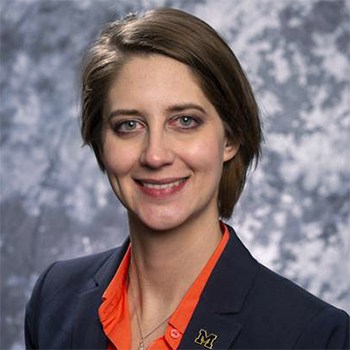Advisory Board Section
Research
Primary Website
Biography
Additional Title
- Computational Scientist, Idaho National Laboratory
Andrea Jokisaari is a computational materials scientist in the Computational Mechanics and Materials Department at Idaho National Laboratory. Her ten-year research goal is to advance the state of the art in predicting materials performance evolution under irradiation by quantitatively modeling bulk and interfacial/near-interfacial microstructure changes, understanding the impact of initial microstructure on subsequent evolution, and using representative volumes of materials to predict materials properties. She is an expert in multi-physics phase field modeling, especially of metals and alloys, integrating modeling information across length scales, and collaborating with experimental researchers. She has researched mesoscale behaviors of a-uranium, irradiation-driven grain subdivision in uranium dioxide, nucleation at the mesoscale, hydride formation in zirconium fuel cladding, microstructures of novel cobalt-based superalloys, and phase field benchmark problems. She is the Deputy Technical Director of the Nuclear Materials Discovery and Qualification initiative (NMDQi) at INL, where she both servs as a subject matter expert on nuclear materials structure-property evolution and develops overall program conceptualization. Before joining INL, she had a postdoctoral research position jointly held between Argonne National Laboratory and Northwestern University. She holds a Ph.D. in materials science and engineering from the University of Michigan and a B.S. in ceramics and materials engineering from Clemson University.
